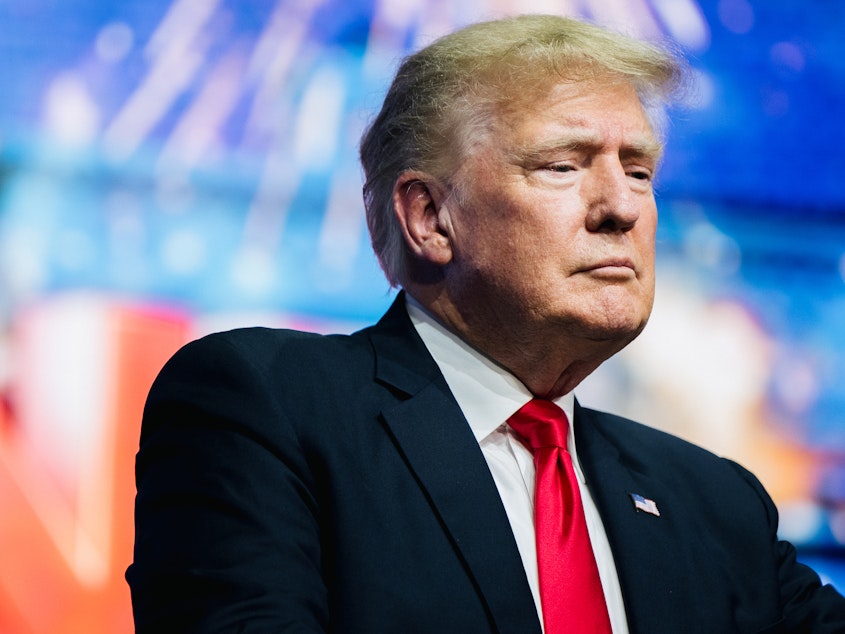Trump's social media deal is being investigated by regulators

A planned merger between former President Donald Trump's social media startup and a shell company is being investigated by regulators.
The shell company, Digital World Acquisition Corp. (DWAC), said in a filing on Monday that it "has received certain preliminary, fact-finding inquiries from regulatory authorities, with which it is cooperating."
The company said the investigations are being conducted by the Securities and Exchange Commission as well as the Financial Industry Regulatory Authority, which helps oversee the securities markets.
DWAC did not reveal the specific thrust of the investigations.
Its announcement comes less than two months after DWAC announced plans to merge with a new social media startup from Trump Media & Technology Group, which is seeking to launch a platform called TRUTH Social next year that would compete against the likes of Facebook and Twitter.
Sponsored
Trump was banned from both Facebook and Twitter after the Jan. 6 insurrection.
DWAC is a so-called SPAC (special purpose acquisition company), or a shell company that lists on exchanges with the express purpose of merging with a private company. The merger provides the targeted private company with a faster and less onerous route to becoming publicly traded than the traditional initial public offering, or IPO.
DWAC was little known until it announced the deal to merge with Trump's social media venture.
The New York Times and other media have reported that DWAC and the Trump company may have held talks before DWAC went public, which could mark a violation of rules governing SPACs.
The SEC declined NPR's request for comment, and neither company responded to queries.
Sponsored
DWAC shares surged after announcing the planned merger with Trump's media company. In a separate filing last week, DWAC said it had raised an additional $1 billion from investors.
SEC Chairman Gary Gensler has called for "enhanced disclosures" in the SPAC market. In a recent speech, he said he has "asked staff for recommendations on how we might update our rules so that investors are better informed about the fees, costs, and conflicts that may exist with SPACs." [Copyright 2021 NPR]



